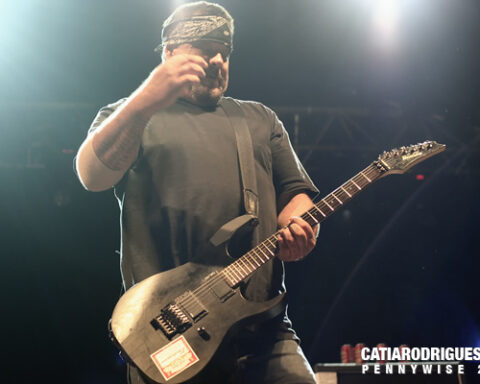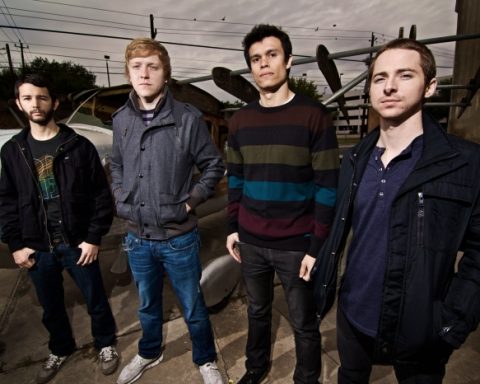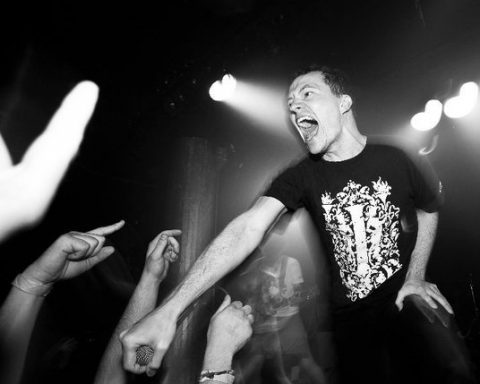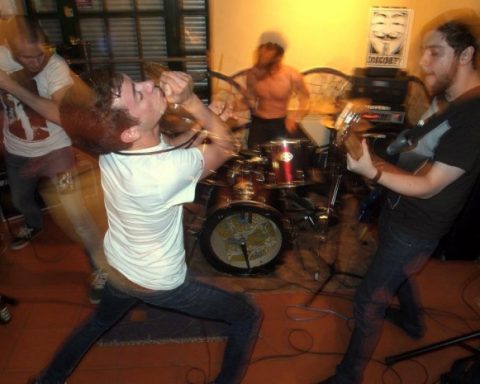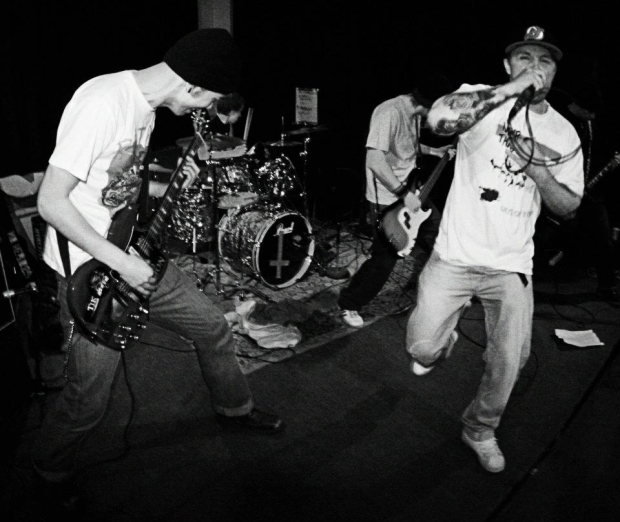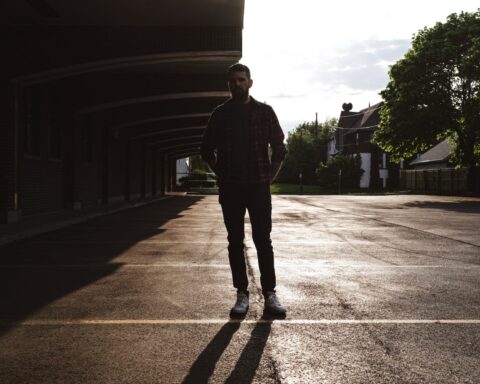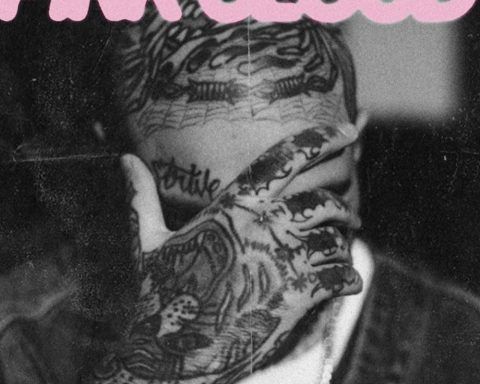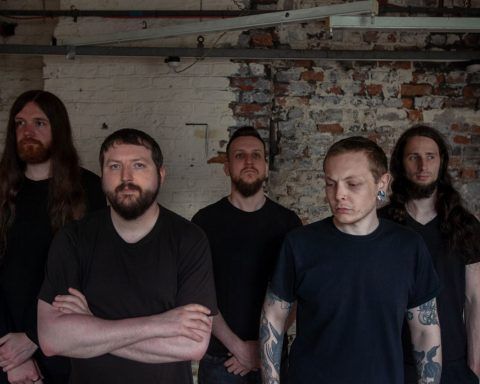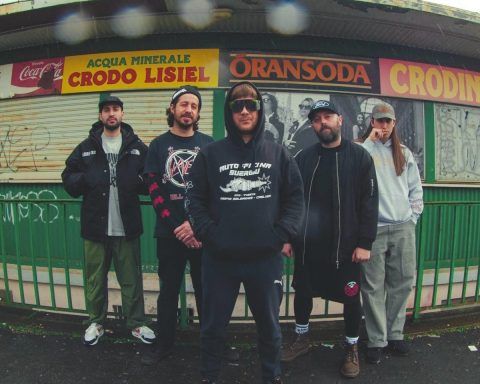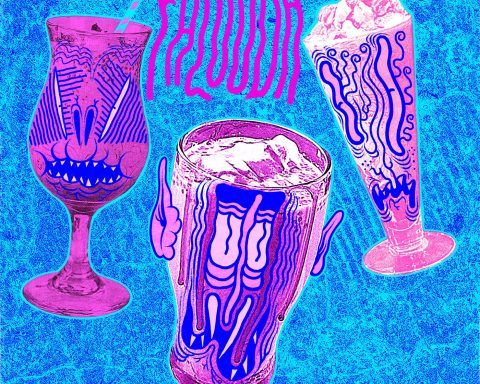Powerline recently conducted an interview with TESTAMENT‘s lead singer Chuck Billy.
The new album is doing really well in the charts and pleasing a lot of fans. How do you think “Dark Roots of Earth” improved upon what some had called your comeback album, “The Formation of Damnation”?
I think, definitely going into this record, having the original lineup back together brought a boost of self-confidence as far as songwriting, musicianship, friendships … everything all together. Before we got the original lineup back together, we were, definitely at that time, almost not a full-on touring band. We were kind of getting a little fed up with just trying to find replacement musicians and never knowing who was gonna be in the band. We weren’t touring that hard or working that hard. Since we got the lineup back together — and doing a few years of touring now — it’s gotten us more motivated and brought our self-confidence up. And I think it really shows in this record, in the writing. With some records in the past, when we wrote, we were really self-conscious about what fans or the media would think about putting songs like “Cold Embrace” or “Dark Roots of Earth” on the record. This year, when we wrote, we put those songs in. When we wrote them, we thought, “This feels good.” And thinking about what people would think didn’t really cross our minds. We just wrote it for ourselves. I think that’s what really stands out on the record, all of that, you know. We’re touring a lot harder. We have a lot more confidence in choosing what we’re doing. And I think I consciously really wanted to sing a little more and put a little melody and hooks in the vocals. I took that approach and it definitely got received well by people. We’re really just pleased at the response from people digging it. And we took a different approach mixing it this time. In the past, Eric [Peterson, guitar] and I would always be in the mix process, and we’d always be using probably too many delays and reverbs and effects on the vocals where it kind of got buried. This year I really felt so good about the lyrics and the melodies that I wanted a different approach. I wanted it a little bit drier, not much effects and make more of the mix centered around the vocal, and I think it turned out for the better by doing that. Now, looking back, I’m like, “Wow, I should have done this a few records ago.” [laughs]
A lot was made of [drummer] Gene Hoglan’s blast beats. Do you think he brought something to the sessions this time around?
His style and just how good he is and having such a solid tempo, it adds to making it a better record. But, really, Eric had a lot of that stuff created and thought out in his mind. He knew what he wanted already, and knowing that Gene could pull it off was a bonus. If we were to have had some other drummers that didn’t have the skills as Gene, maybe those blast beats wouldn’t have made it because it wouldn’t have sounded right. But Eric knew that whatever he threw at Gene, he was gonna get.
“Native Blood”, which draws on your family heritage, is such a strong song. What emotions were at play when writing the lyrics to that particular song?
Well, when I was sick, I really went back to my native roots to help me mentally, spiritually face the cancer and get through it. That was a big part after a hundred and something songs of Testament. I really never touched on a lot of that. And it was a big part of my life and it just kind of came to me. I wanted a song like that. It was written coming from my Native American aspect but the song was really written about indigenous blood. I mean, everywhere in the world there are indigenous people. And there’s always people that feel like they have something to say, they have a voice, they want to be heard. I sang the song in Spanish and the Spanish interpretation doesn’t say “native blood,” it says “indigenous blood.” It ended up being one of the catchier songs with riffs, so we chose that song to be the first single with the video. People have been really relating to it and relating to the video, especially natives. I’ve been doing a lot of press for that and people have been really moved and if you see the video it brings out a lot of emotion, you know. When I had seen the first edit I was holding back because I was just choked up for minute because it was really emotional. It had captured the story and a strong message. It was killer.
You’ve been touring with Anthrax and Death Angel, two bands that have been around since the beginning of the whole thrash/speed/power metal thing. What do you think contributes to the longevity of your band and bands like that?
In the ’90s, metal was kind of a bad word. Over the last 10-12 years or so, there’s been a lot more new generations of thrash-style music and it’s getting more popular. It’s just a new generation of that fan base. There’s always gonna be a young rebellious teenager looking for something against the grain. And heavy metal’s always been the answer it seems like, or punk rock or something. I think bands like us kind of survived those ’90s and are still creating music that doesn’t sound like it’s dated, or like a 30-year-old band writing the same stuff. You always try to keep it new and different with every record we do. I think that’s what kept us alive. And it just happens that there’s a true spirit at heart still driving us.
You can read the rest of the interview here.





